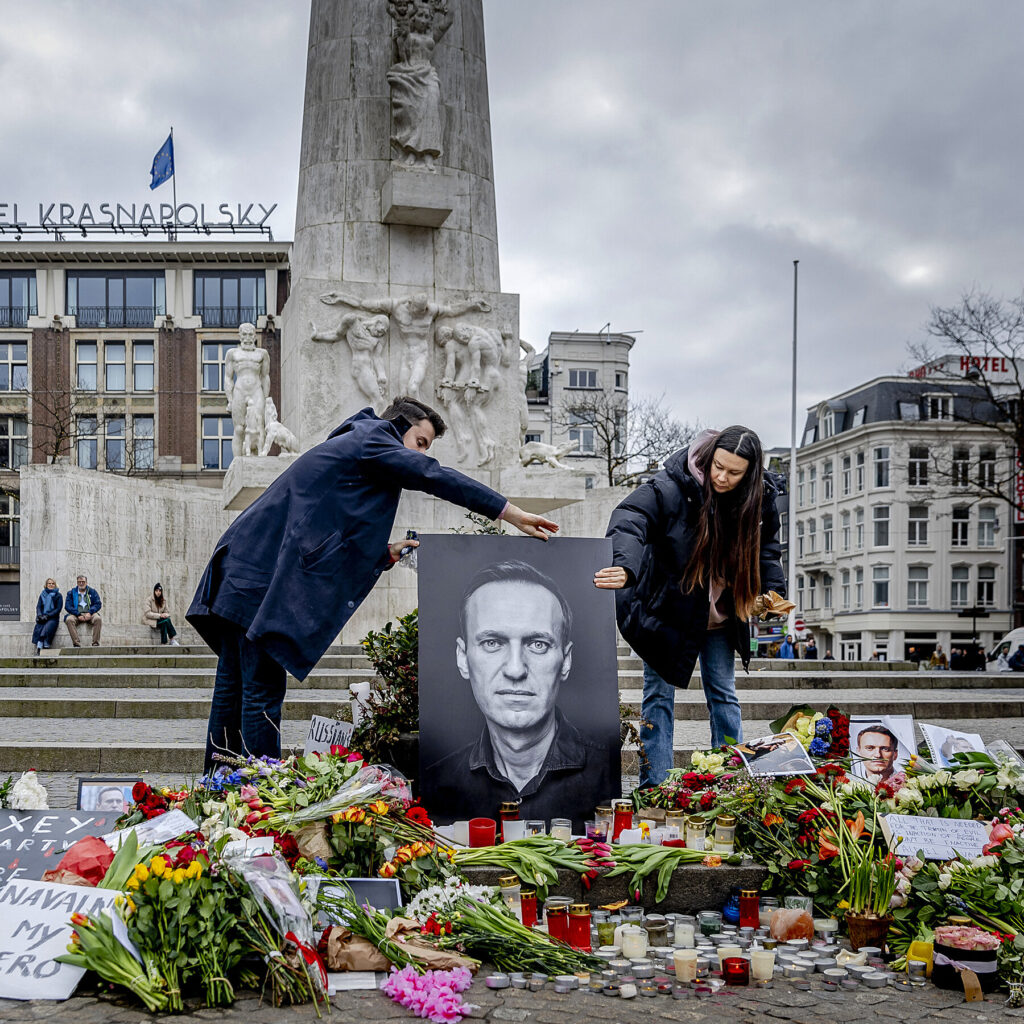
It might seem sacrilegious to think of Alexei Navalny as a saint, or his likely murder at the hands of Putin to be martyrdom. But hear me out.
The word “saint” comes from the Latin sanctus, evolving in old French to sacrer, meaning “to make sacred.” The way one became sacred originally was through sacrifice—another word with roots in sanctus—giving up oneself.
In the new Roman Catholic Cathedral of Our Lady of the Angels in downtown Los Angeles, the elegant travertine walls of the modern structure are draped with woven tapestries depicting the saints. There is quite a procession of them. They begin with the saints of the New Testament, Mathew, Mark and Luke, and then Peter, and then a whole line of medieval saints.
Towards the end are more recent saintly figures, including Mother Theresa and Pope John Paul. But then the very last tapestries portray some surprising figures. There is a young Afro-American guy in jeans and tennis shoes. Nearby is an Asian girl in a comfortable skirt. There are some kids in shorts.
All of them saints, even the ones that we didn’t expect. They sanctified themselves with their lives.
In the early history of sainthood, one of the most certain paths to beatification was martyrdom. The term “martyr” come from the Greek martur, which means “witness.” Those who witness to their faith to the extent that they would rather die than renounce it are the prime exemplars of martyrdom.
This leads us back to Navalny. There is no question that this definition of martyrdom fits his remarkably brave—some would say foolhardy—stance. The very fact that he would persist in returning to Russia, to the land controlled by the same person, presumably, who had shortly before tried to poison him, is amazing. Few of us would risk such a thing.
Navalny’s hope was that he would be able to follow the path of his hero, Nelson Mandela, who spent decades rotting in the South African prison on Robben Island before the political winds shifted. When Mandela was finally released, he was hailed as a hero and made the first President of the post-apartheid country.
That was Navalny’s hope. Though he was fully aware of the likelihood that it would not end like that, that it would end the way it did. Sooner or later, Putin would finish the job.
Yet he persisted in his witness, even to his martyred death. But was he a saint?
In Christianity, the exemplar of sainthood is Jesus Christ, who according to Christian belief, gave himself to save the world. That is, his martyrdom was not a selfish act, to valorize himself, but in some way to ennoble everyone.
It is a singularly odd way to live, this stance of trying to live a life where the virtuousness of the cause rises above one’s personal interests, even one’s own personal security. Martin Luther King Jr. had it. Gandhi had it. And so did Navalny.
In Saints and Virtues, a book on the comparative study of sainthood that came out of a ten-year Berkeley-Harvard project on Comparative Religion, for which I was co-director, we considered the hallmarks of sainthood. In all traditions where saints abounded, including Sufi Islam and Bhakti Hinduism as well as Christianity, there was something peculiar about those people that we consider saints.
They were “sublimely wacky,” we concluded. We meant that in a nice way, to describe people who lived unconventional lives for the sake of their understanding of truth. We are not really meant to be like them—they are not exemplars—since they are so unusual. And those around them who for most people are the ones you want to protect, are often abandoned.
Gandhi was a horrible father, and not a very good husband. ML King had imperfections of his own. And Navalny has left his teenage son and his college-aged daughter on their own, along with their mother, whom he also abandoned in his imprisonment and now in his death. Yet she had taken up his mantle of leadership.
We cannot all be saints. But thank God there are such beings on the face of the earth. We are all better for having lived in a world touched by them, by those like Saint Alexei.
